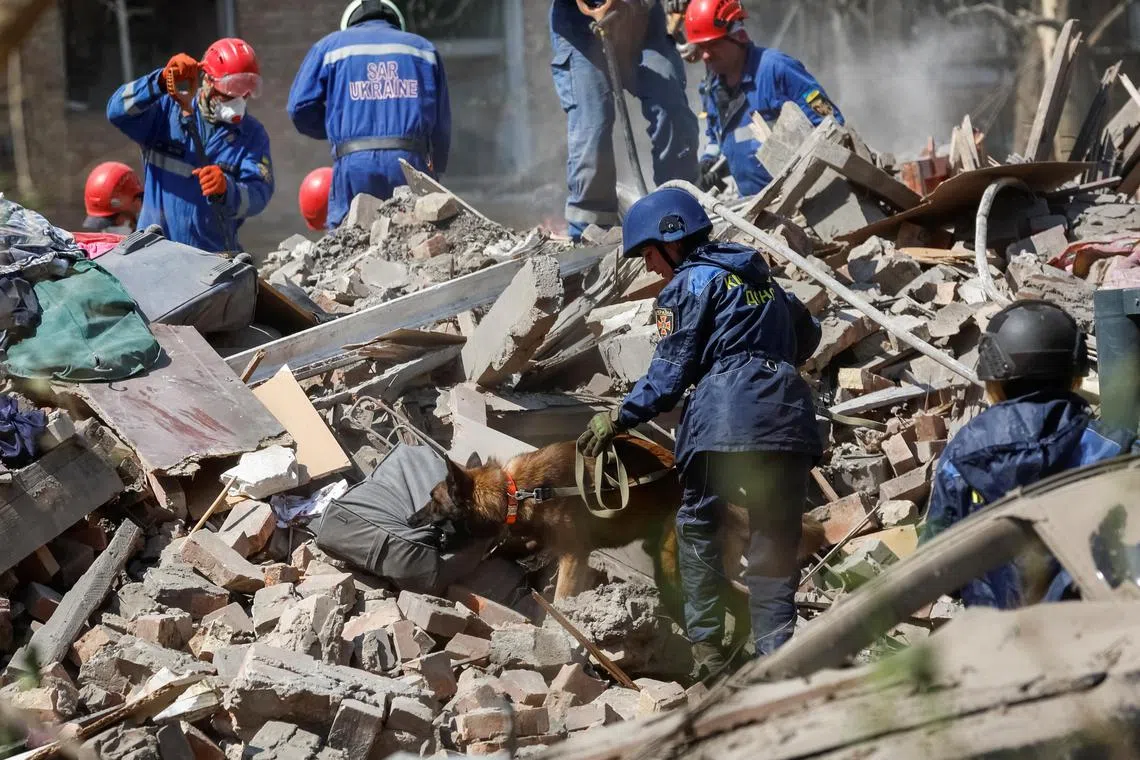Missile that killed at least 12 in Russian strike on Kyiv was North Korean, source says
Sign up now: Get ST's newsletters delivered to your inbox

Rescuers searching for people who could still be under the rubble of a residential building, after an overnight missile strike on Kyiv, on April 24.
PHOTO: REUTERS
Follow topic:
KYIV - The weapon that killed at least 12 people in a major Russian aerial attack on Kyiv
The missile struck a residential building in the Sviatoshynskyi district west of Kyiv's centre, the source said. Several people were still missing in the morning, with some potentially buried under debris, officials at the site said.
Russia has not commented directly on the strike, with Kremlin saying only that it has been hitting "military and military-adjacent" targets. Russia and North Korea have denied weapons transfers that would violate UN embargoes.
Russia's military cooperation with North Korea grew rapidly as Moscow became internationally isolated after invading Ukraine in February 2022.
Ukraine says North Korea has supplied Russia with vast amounts of artillery shells as well as rocket systems, thousands of troops and ballistic missiles, which Moscow began using for strikes against Ukraine at the end of 2023.
By the start of 2025, Pyongyang had supplied Russia with 148 KN-23 and KN-24 ballistic missiles, Ukraine's military spy agency says.
KN-23 (KN-23A) missiles are armed with warheads of up to one tonne, which is more powerful than the Russian equivalent missiles, the Ukrainian source said.
The Ukrainian military has not publicly said what the missile was. In its readout after the Russian attack, Kyiv said seven ballistic missiles were used in total, identifying them broadly as Iskander-M/KN-23.
North Korea's involvement in Ukraine has alarmed not only European capitals but also South Korea and its allies in Asia, who fear that lessons learned from war could be unleashed on them one day. REUTERS

